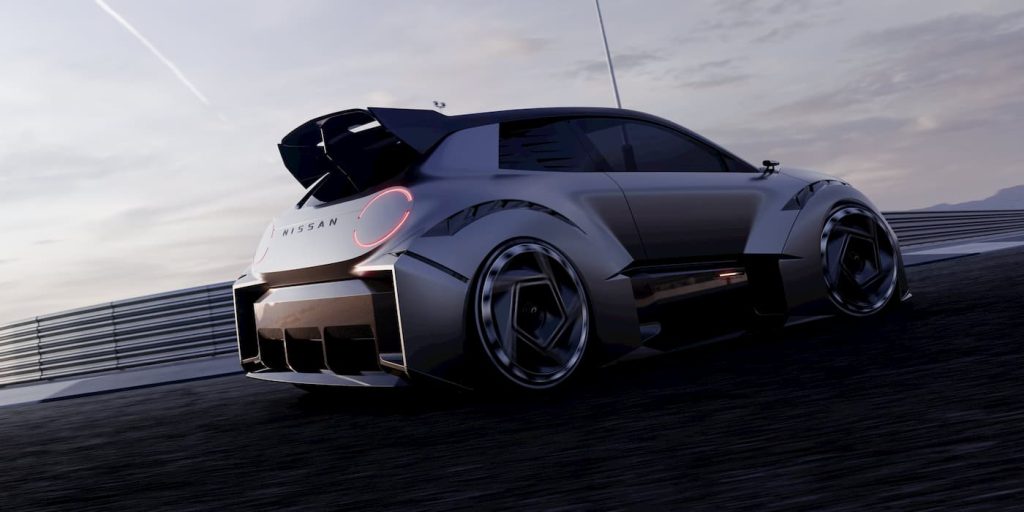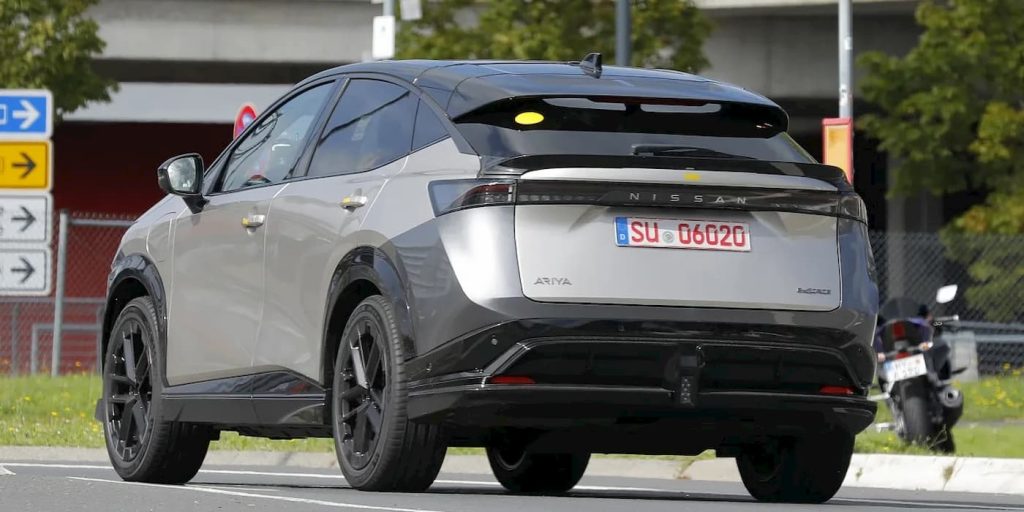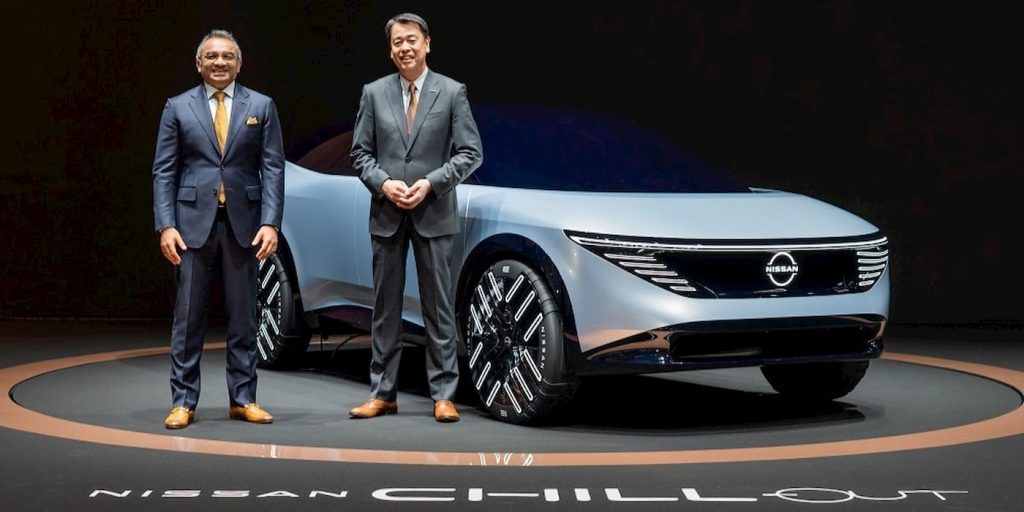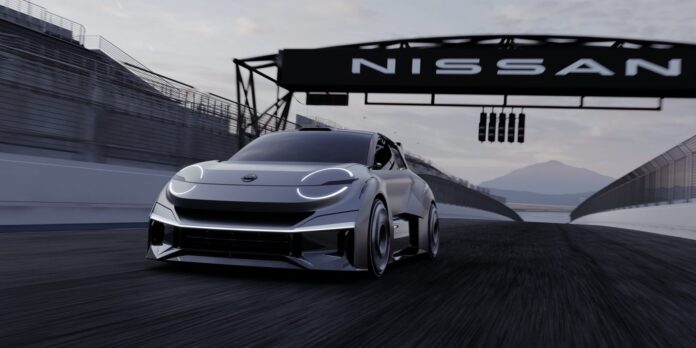With plans to go 100% electric in Europe by 2030, Nissan is previewing its future lineup with a new sporty urban EV concept.
Nissan revealed Monday it will phase out ICE vehicle production with plans to release only all-electric models by 2030.
“EVs are the ultimate mobility solution. More than a million customers have already joined our journey and experienced the fun of a Nissan electric vehicle, and there is no turning back now,” explained Makoto Uchida, Nissan’s president and CEO.
Nissan reached one million global electric vehicle sales in July, over a decade since releasing its first EV, the Nissan LEAF.
Although Nissan was an early pioneer in the EV industry, releasing the LEAF hatchback in 2010, it has fallen behind as more advanced electric cars, like the Tesla Model 3, hit the market.
The Japanese automaker released its second global EV, the Ariya electric SUV, which began delivering late last year.
Nissan unveiled a sleek new sporty urban “Concept 20-23” EV to propel its all-electric future plans.

Meet Nissan’s “20-23” sporty Urban EV concept
Celebrating the 20th anniversary of its Design studio in Paddington, London, Nissan’s sporty urban electric car was created as a fun-to-drive everyday city EV.
The electric hatchback features several performance design features, including an aggressive front lip spoiler, roof air scoop, massive rear wing, wheel arch covers, oversized air vents, side skirts, and more.
It also includes next-gen design features like circular LED headlights in the front and rear and butterfly doors.
A performance-oriented Ariya EV with several Nismo-like design features was spotted last week, suggesting the performance brand will become more involved in the electric era.

Nissan is also celebrating the 35th anniversary of its Technical Centre Europe (R&D facility), where the UK’s latest real-world autonomous driving study, evolvAD, is taking place.
The automaker is investing over €40 million ($42.4 million) in both facilities to support its transformation.
All-electric future
Under its Ambition 2030 strategy, Nissan plans to launch 19 fully electric vehicles by 2030. The company expects to introduce cobalt-free tech to reduce battery costs by 65% by 2028.
Also, by that time, Nissan aims to launch solid-state batteries. Nissan said the new batteries will enable it “to expand its EV offerings across segments and offer more dynamic performance.”

Nissan claimed the solid-state batteries will cut charging times by one-third while reducing battery pack costs to $75 per kWh.
Two new EVs have been confirmed for Europe, including a new compact entry-level EV to succeed the Nissan Micra. The other EV will be built at Nissan’s Sunderland plant, or “a blueprint for the future of automotive,” as the automaker describes it.
Last month, Nissan previewed three new all-electric models for US dealers, including a LEAF successor and performance sedan that could replace the Maxima.


